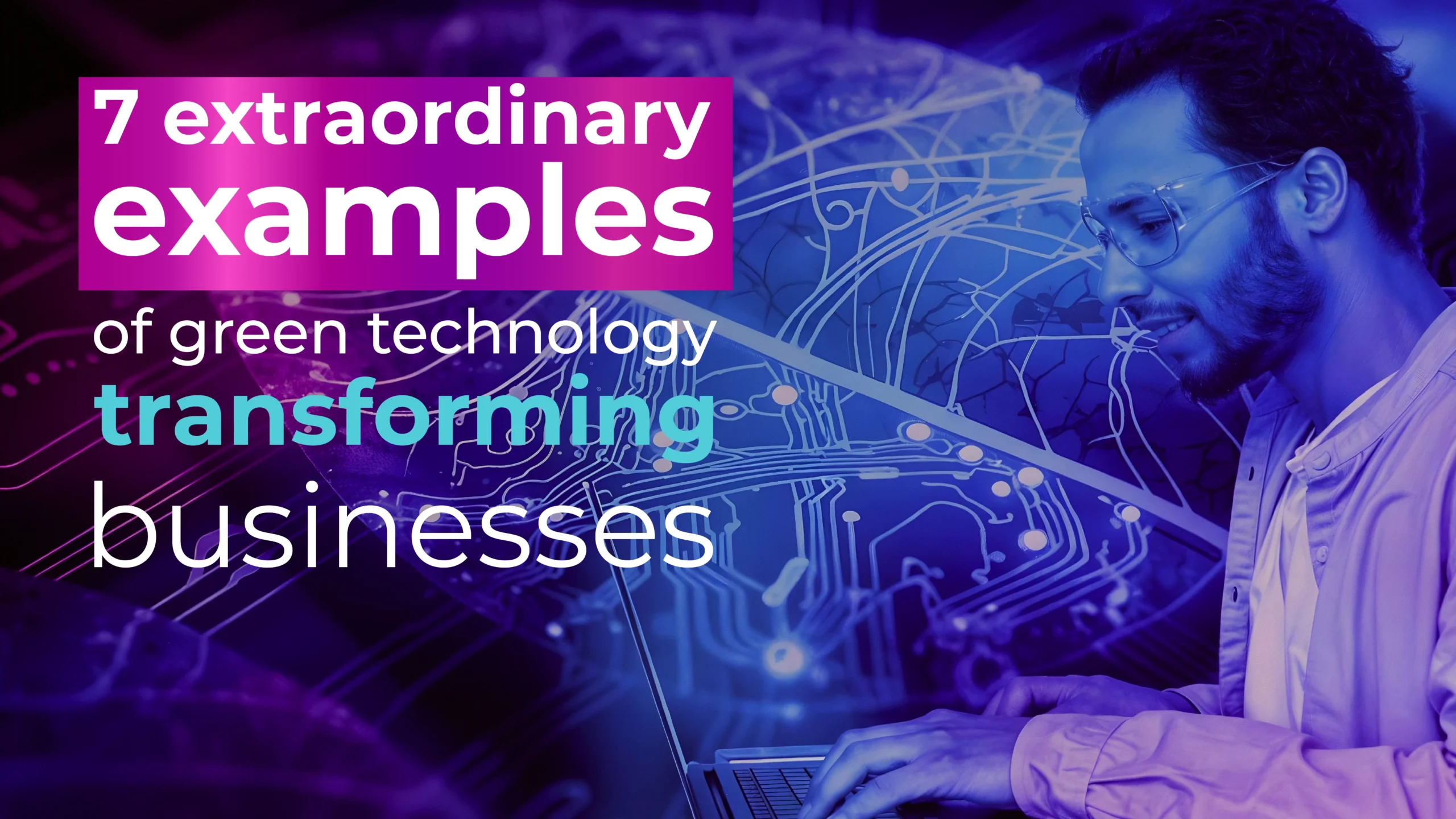7 extraordinary examples of green technology transforming businesses
2025-06-17T11:49:25

Green tech isn’t just an option anymore—it’s a must-have for companies that want to stay competitive and planet-friendly.
Innovations like cloud computing, renewables, and electric mobility are changing how businesses operate, slashing their environmental footprint while boosting efficiency. And the best part? Many of these solutions aren’t just eco-friendly—they save serious cash in the long run.
From startups to corporate giants, more businesses are adopting sustainable tools to meet regulations, attract eco-conscious customers, and build a cleaner future. Let’s dive into seven green techs shaking up industries worldwide.
1. Cloud Computing
Cloud computing’s a game-changer: moving from physical servers to the cloud cuts energy use by up to 70% vs. traditional data centers.
Platforms like AWS or Google Cloud use AI algorithms to optimize resource use, cool servers efficiently, and prioritize renewables. Plus, cloud scalability stops wasted capacity.
For SMEs, this means top-tier tech without expensive infrastructure. For remote teams, cloud collaboration cuts travel needs, lowering CO₂ emissions. Result? Leaner companies, smaller environmental impact, and tighter budgets.
2. E-Signatures
Imagine ditching paper contracts, invoices, or forms. E-signature tools like DocuSign or Adobe Sign don’t just speed up legal processes—they save millions of trees yearly. They also cut ink, plastic, and fuel waste from shipping documents.
But it’s not just green: these tools use blockchain-level security and meet global standards. For sectors like banking or real estate, faster processes mean closing deals in hours, not weeks. Less red tape, more productivity, and a happier planet.
3. 5G Networks
5G isn’t just speed—it’s 90% more energy-efficient per gigabyte than 4G. This connects thousands of IoT devices in real time, optimizing smart crop monitoring or logistics fleet management.
Companies like Siemens use 5G to run automated factories that adjust power use based on demand.
It also boosts remote work with lag-free 4K video calls, cutting commutes. Even in retail, 5G powers AR experiences that replace physical catalogs. Fewer emissions, more innovation.
4. Solar Panels
Solar power isn’t just for eco-warriors: Walmart and Apple now use solar panels to cover up to 100% of their energy needs.
With better battery storage, they run on clean energy even at night. In countries like Mexico or Spain, tax incentives mean companies recoup costs in under five years.
New solutions like transparent solar windows or Tesla-style solar roofs blend design and function. For factories or warehouses, this means energy independence and price stability.
5. Electric Vehicles (EVs)
Electric fleets are revolutionizing logistics: Amazon already uses Tesla trucks for urban deliveries, cutting emissions and maintenance costs (no oil changes!).
BYD or Rivian EVs are perfect for corporate travel, with ranges over 400 km per charge.
And it’s not just cars: electric drones delivering meds to rural areas or solar-powered autonomous ships are on the rise. With office charging stations and gov partnerships, companies prove sustainable mobility pays off.
6. Document Digitization
Uploading files to the cloud seems simple, but its impact’s huge: McKinsey says digitization could cut global paper use by 50% by 2030. Tools like SharePoint or Dropbox Business let you edit, sign, and share docs without printing a single page.
Plus, smart scanners and OCR turn physical files into searchable databases, boosting organization and cutting errors. For healthcare or education, this means less storage space and better security against loss or theft.
7. Carbon Capture
What if companies could “recycle” their CO₂ emissions? Direct air capture tech, like Climeworks, sucks CO₂ from the air to store underground or turn into building materials.
Cement giants like Holcim use these systems to neutralize 40% of emissions, while Shell integrates them into energy transition plans.
Though pricey, scalability’s promising: Microsoft dropped $1B in 2023 to offset its footprint. Paired with reforestation or clean energy, this tech could be key to hitting net-zero.
These examples prove green tech isn’t a cost—it’s a smart investment. Companies that adopt it don’t just boost their rep—they build resilient models for a future where sustainability is the ultimate currency.
The green revolution isn’t optional. If you wanna stay ahead in your industry and align with eco-friendly regulations, integrating these techs isn’t just nice—it’s necessary.